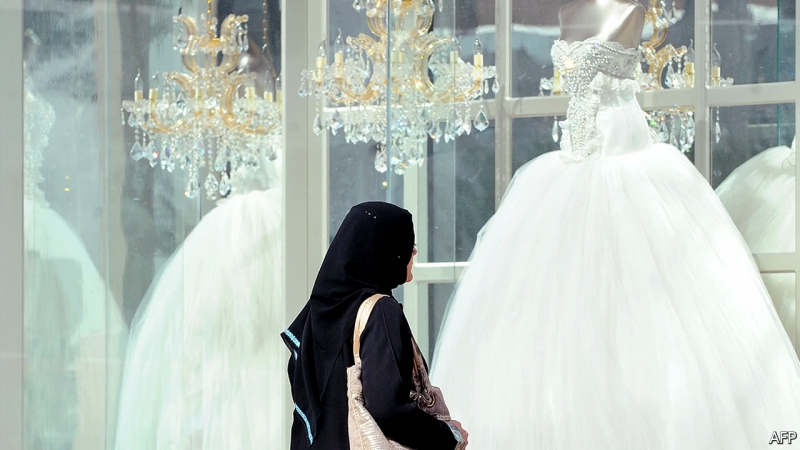THE ECONOMIST

Differences in marital law provide an opportunity for unscrupulous men
SHIRIN MUSA draws on bitter experience to inspire her work to help women caught between legal and cultural worlds. Educated and long-resident in the Netherlands, she was unhappily married to a man from her native Pakistan. In 2009 a Dutch judge put a legal end to their union but her husband would not grant an Islamic divorce. Although she lived in secular Europe, this refusal mattered. If she remarried, she would be considered an adulteress under Islamic law and risk punishment if she returned to Pakistan.
So Ms Musa pursued her spouse through the Dutch courts. In 2010 she received a landmark judgment: he would be fined €250 ($295) a day, up to a maximum of €10,000 ($11,795), as long as he refused to cooperate. This had the desired effect. She then persuaded the Dutch parliament to make holding women in such “marital captivity” a criminal offence, in theory punishable by jail. Now she runs Femmes for Freedom, a charity that campaigns for people in similar situations. “I was lucky to be well-educated and have a supportive blood family,” she says. “Others are not.”
The Dutch law, in force since 2013, is an unusual effort to protect women in the West from rules made in harsher places. But in a transient world it is hard to seal one country’s legal and cultural norms from another’s. Under the basic principles of so-called private international law, courts in country A can enforce the legal norms of country B as they apply to people who are clearly from country B and to transactions which occurred in country B. This can have odd effects. Iranians who fled after the revolution in 1979 found 30 years later that German courts were adjudicating their marital affairs by the Islamic rules of their homeland. In most democracies, recognition of foreign codes is balanced by a countervailing principle. A judge can refuse to recognise, say, a child marriage contracted overseas if it offends “public order”.
Still, the risk of being trapped between systems is acute for those in transition from the Islamic world, which has detailed prescriptions for marriage, divorce, custody and inheritance, to Western countries where egalitarian, secular standards prevail. In classic Muslim thinking a man can renounce his wife unilaterally by pronouncing the word talaq on three occasions. The ex-wife keeps the mahr, the gift which the man gives her on marrying. For a woman, obtaining a divorce is far harder. She can start proceedings, with the help of an imam or Islamic authority, and this can lead to a khul’a or divorce by consent, though she may have to cede her mahr to make her husband agree. If he has behaved badly and refuses a termination, an Islamic judge can impose a faskh or judicial divorce. But getting this can be hard.
The situation for hundreds of thousands of Pakistani-descended women in England isin some ways worse than for those living in their homeland where only one, Islamic set of rules applies. That is thanks to an ever-growing habit among English Muslim couples: having an Islamic ceremony which is not registered with the British state. A recent survey of 1,000 married Muslim women by Britain’s Channel 4, a publicly owned broadcaster, found that 600 had religious-only unions.
The Economist for more
(Thanks to reader)
